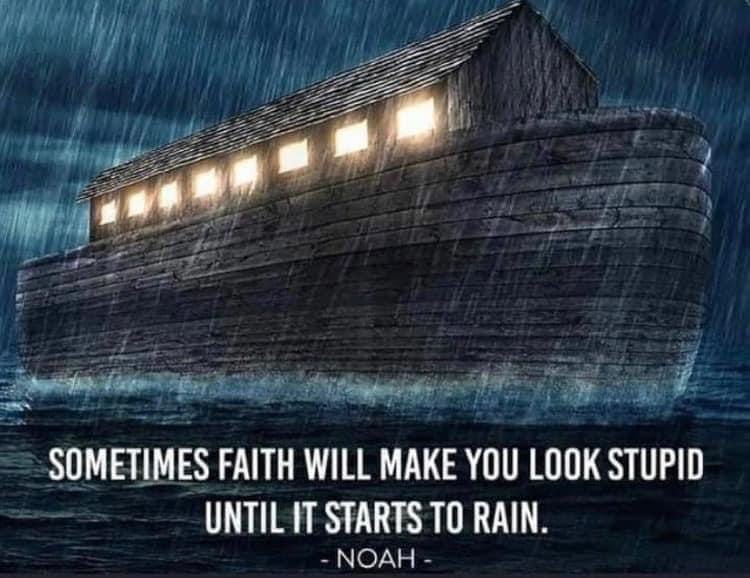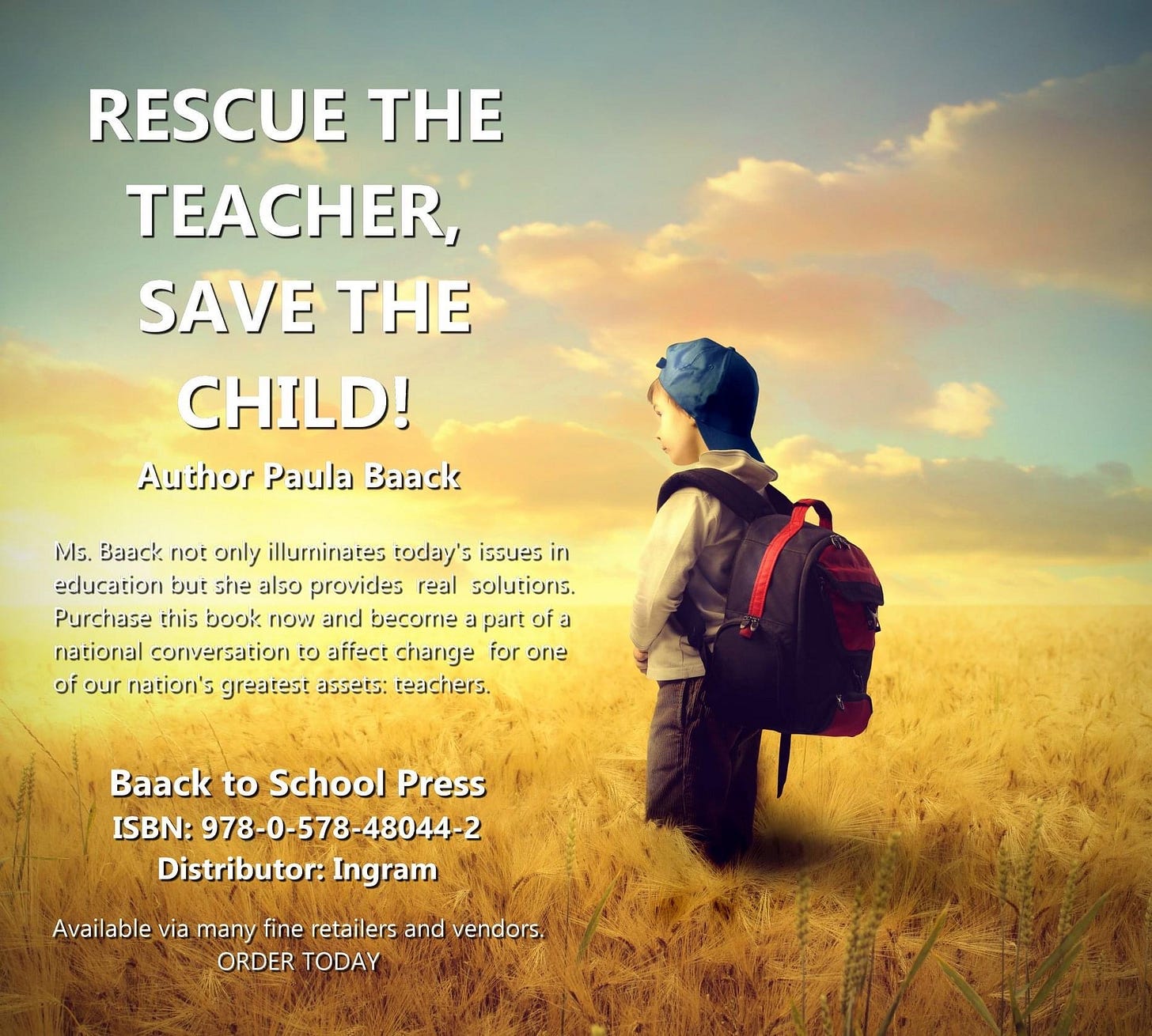FAITH: QUESTION MARK? OR EXCLAMATION POINT!
Sometimes faith will make you look stupid until it starts to rain. -Noah
As Christmas draws near, I'm taking a break from my usual rants about the state of education in America—thank God for that! Instead, let’s dive into something a little more controversial: religion. Or, as I like to call it, "How to start an argument online in two easy steps."
Step 1: Share an opinion.
Step 2: Wait.
Brace yourself for the storm of fervor and fury that follows!
Religion, right before Christmas? Bold move.
Now, before you hit delete or switch to a different podcast, let me clarify: I’m not religious in the traditional sense. Some of my friends think of me as religious, and they mean it as a compliment. But over time, that label has lost its appeal. So much hate and harm have been inflicted on people throughout history in the name of religion, and I’ve become disillusioned with that.
A more accurate description of my beliefs would be this: I don’t follow a religion, but I do have a personal relationship with Jesus Christ.
In just a few days, my family, friends, and I will celebrate the birth of Jesus. My faith, at its core, is built on what can’t be seen. I believe Jesus is the Son of God, born to save us from a broken world. It’s really that simple. Yet, there are times—often when I try to overthink it—that I lose sight of that simplicity, even if just for a moment.
Christmas is the oldest worldwide celebration. The church in Rome, under the direction of Emperor Constantine, officially began celebrating Christmas on December 25th, 336. It’s no coincidence that this celebration falls in December, the darkest month of the year. The birth of Jesus, this tiny child, brought a light that has endured for over 2,000 years. For me, growing up in middle America, loving Jesus as the Bible’s promised Savior was enough. My faith was an exclamation point—I saw the world through the lens of my Christian beliefs. Everyone I knew marked the occasion, from Christmas Eve church services to writing letters to Santa. Even schools recognized the season as "Christmas Break."
It wasn’t until I went to college that I realized my faith wasn’t shared by everyone—some even despised its very existence. One of my professors, a former Presbyterian pastor who had become disillusioned with the church, made it his mission to challenge my Christian beliefs at nearly every opportunity. I wasn’t equipped to counter his sharp rhetoric, but I felt deeply passionate about my convictions. I knew Jesus was real, and I was determined to stand up for Him, faith boldly proclaimed with an exclamation point.
Fast forward to the boyfriend, who told me Christianity was a myth concocted by weak, miserable people who needed a fairytale to sustain them. It was easy to break up with that one. As a teacher in the 1970s, our superintendent of schools sent out an ultimatum that the words Merry Christmas not be spoken in the classroom. Oh, and yes, he attended my church! My faith was still intact!
Over my decades of teaching, I was often nudged—and sometimes pressured—to adopt a more secular approach to my choral program, especially during December. The "threats" were always carefully worded, with unspoken but serious consequences hanging in the air. In 2016, after an upset parent raised concerns, I had to present five years' worth of choral programs to the school board to determine if my music selections were too religious. I was always mindful of the diversity of my community and carefully chose music to reflect that. The fact that I had kept every single choir program was nothing short of a miracle, and it helped me navigate the investigation.
The result of the two-month inquiry? Over five years, my choral program was 94% secular. Some would argue today that no Christian music should be performed in public schools, but in 1980, the United States Court of Appeals for the Eighth Circuit ruled that studying and performing religious songs—like Christmas carols—was constitutional as long as the intent was "the advancement of the student's knowledge of society's cultural and religious heritage." And through it all, my faith held strong.
I pray openly for my friends and family, both in private and online. After I sent a prayer to a dear friend who had lost her daughter and husband in the same year, she thanked me—but also shared that she didn’t have that kind of faith. Little did she know, my own faith has always been, and will continue to be, challenged. Life happens, and the question mark of faith pops up almost daily.
So here’s the truth you might have been waiting for: I don’t always have an exclamation point behind my faith. Why? Well, that in itself is always the question.
Here are some of my “whys”: My father passed away suddenly, and we hadn’t spoken in months due to unresolved anger. Several years later, my mother was killed in a car accident, and we hadn't spoken for six months either, once again because of lingering indignation. When her will was read, I was stunned to learn that both my son and I had been disinherited. I was blindsided when my first husband walked out on me and our son. I loved teaching, but not all of my students shared that same love—and their parents even less so. My classes were canceled at a university and discontinued at a college. The final blow to my teaching career came when I was fired from a high school position after 46 years in education.
On my way home from being reprimanded and let go, I shouted at God, “Why do you hate me?” Since then, I’ve struggled with depression and the challenge of finding balance and purpose in my life. My faith? Sometimes, it feels like a question mark—not about the existence of God or the love Jesus has for me; those truths are settled in my heart. What remains unresolved is the deep feeling of loneliness that comes with sad times and seemingly unanswered prayers.
I’ve come to understand that it’s not only okay to doubt your faith, but that it’s actually necessary for it to grow. Right now, in this moment, I know that God is on the throne and that Jesus died for my sins so I could have eternal life. God has blessed me beyond measure, even though I don’t always recognize those blessings with open eyes. It’s through my faith in the unseen that I share this message with you: God loves you, and He demonstrated that boundless love through the birth of His Son, Jesus Christ.
If you know Jesus, let His grace and love shine through in your interactions this Christmas season. And take it upon yourself to pass on your faith to future generations, spreading it for years to come.
If you don’t know Jesus, He is waiting for you. Where can you find Him? Look for Him at your local church this Christmas Eve. He’ll be there, patiently waiting for you to believe in Him and open your heart to His love. It’s as simple as the prayer I prayed at a Billy Graham Crusade nearly 60 years ago: God, I want to know Jesus. Please bring Him into my heart and allow me to love Him for the rest of my days.
But don’t wait. Tomorrow isn’t promised, and neither is the rest of today. Can you gamble on eternal life? That lack of faith is a question mark indeed. Find your faith this Christmas, and hold onto it through 2025 and beyond! Faith with a full exclamation point!







